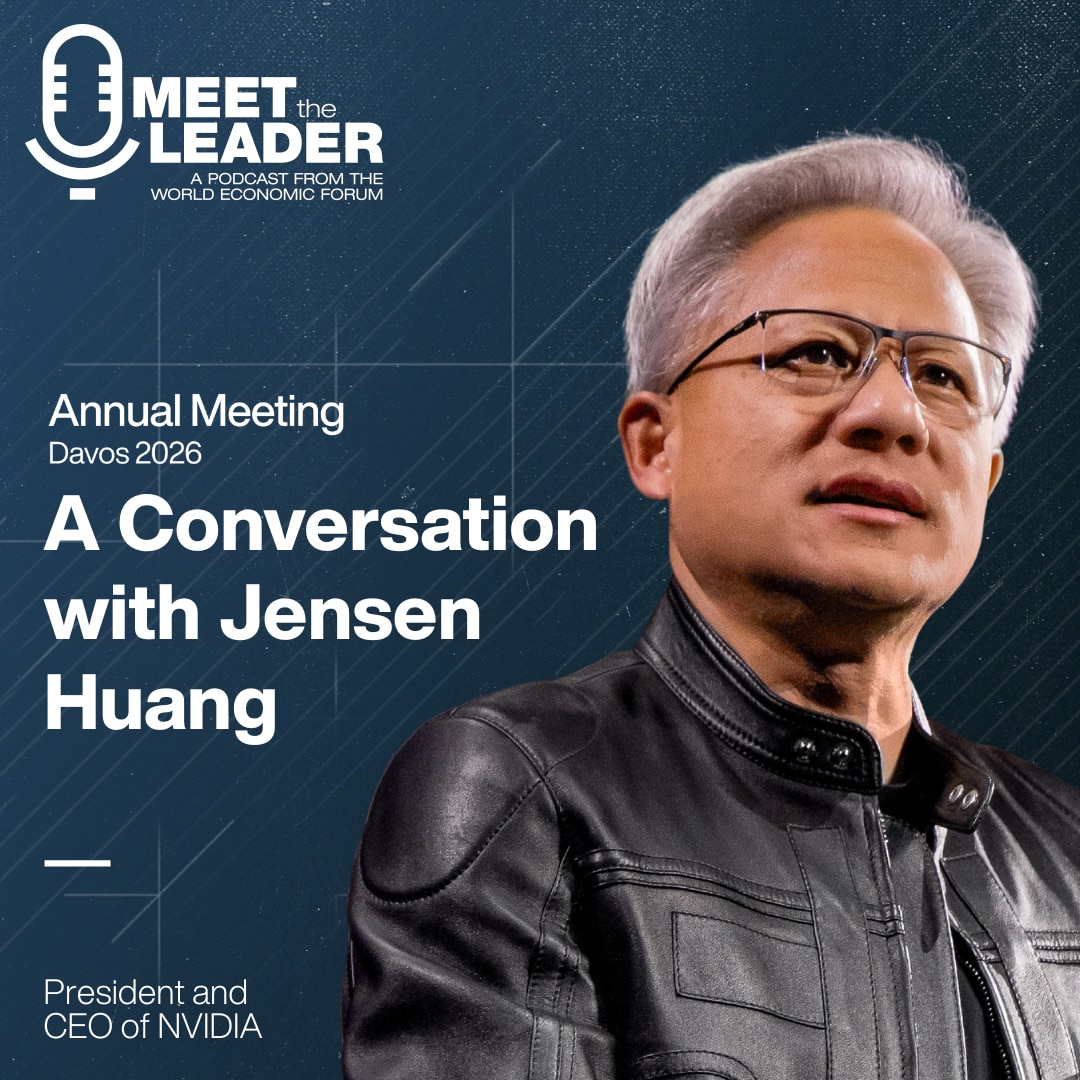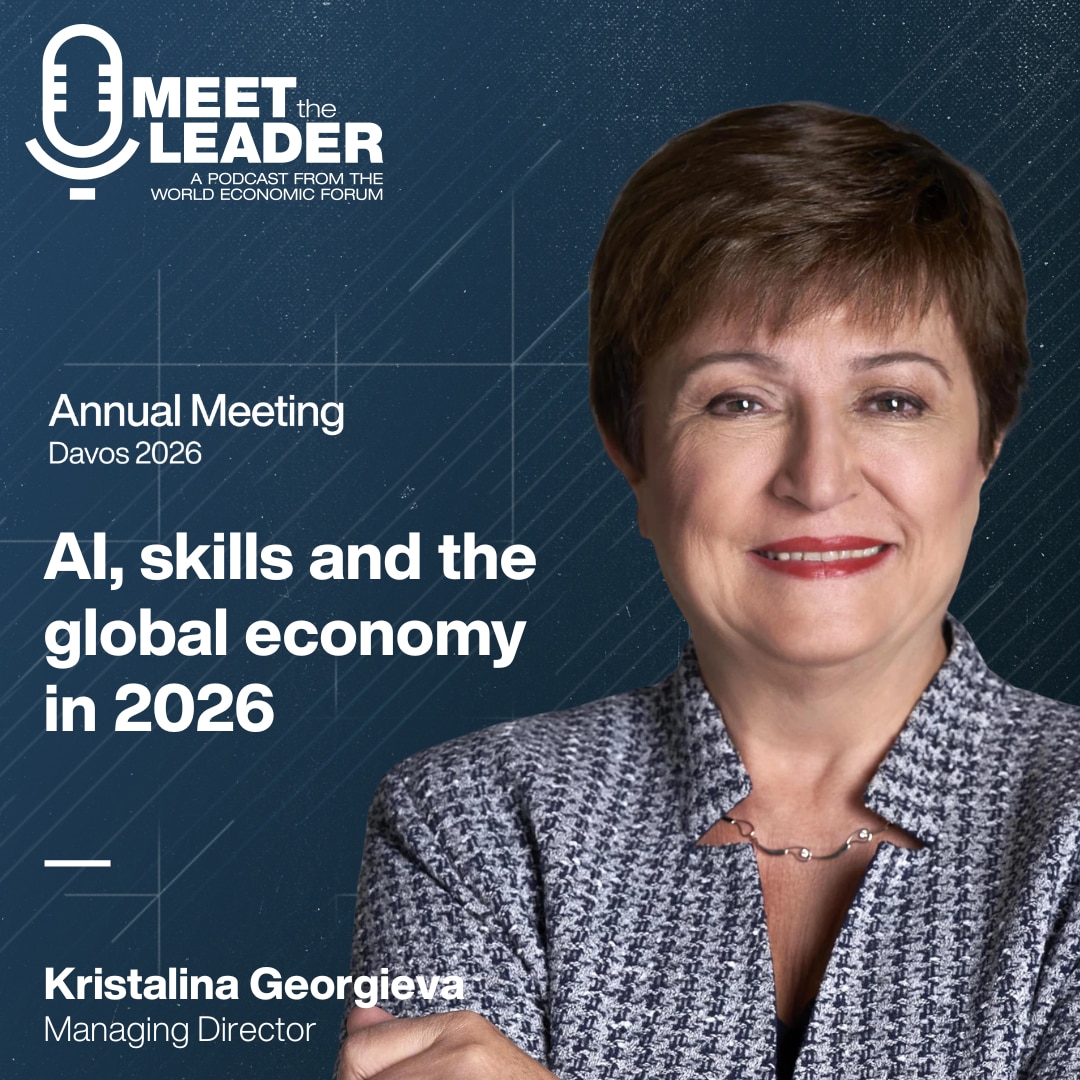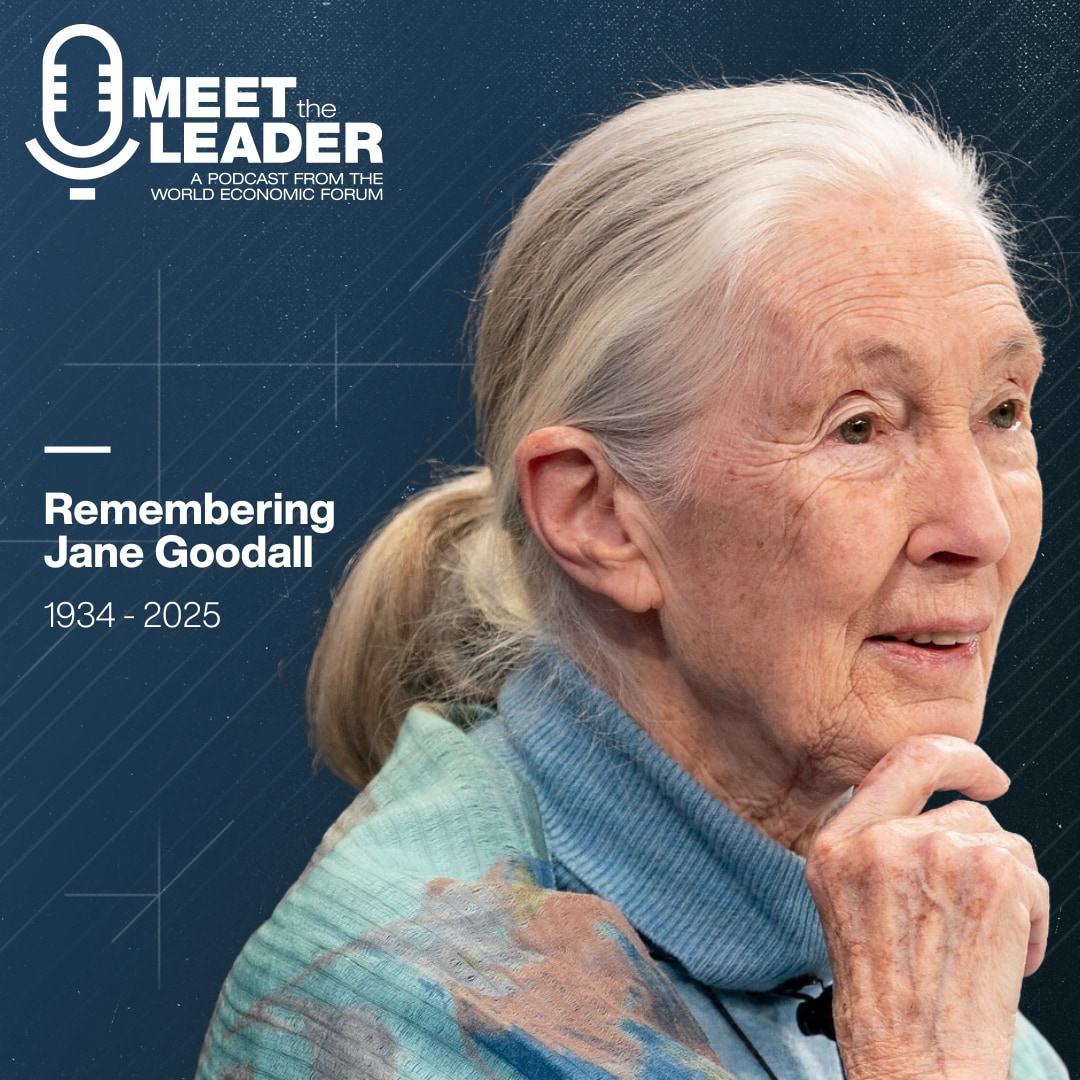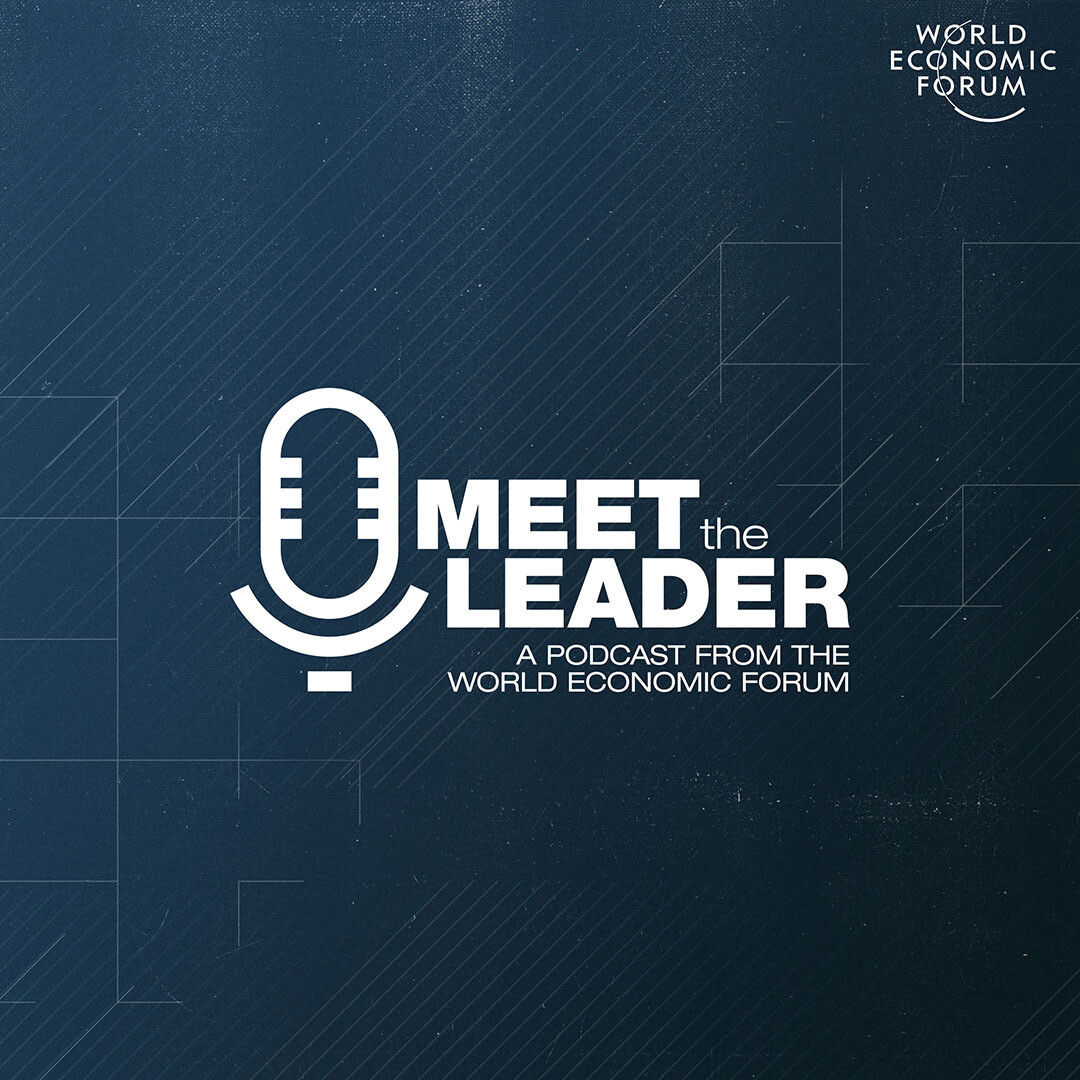Meet the Leader
Be your own role model: A female rocket scientist, pioneer and science influencer explains
Women comprise just a fraction of the aerospace sector - a field research says is poised for trillion-dollar growth in the years to come. Mishaal Ashemimry is the head of the Centre for Space Futures where she works to improve space policies and unlock the next phase of the space economy. She shares her experience as a woman not just in a male-dominated sector but in a region that for much of her life didn’t have a formal space agency. She explains what slows the growth of women in aerospace and what's changing for the better in this sector. She also shares the mindsets and strategies she used to get her ideas heard and to create opportunity for herself, tactics that helped her become the first female aerospace engineer in the Gulf Cooperation Council and to found her own rocket startup.
聴き始める
17 mins
特集エピソード:
Leaders from business and beyond talk about leadership, teamwork and decision-making.
ホスト:
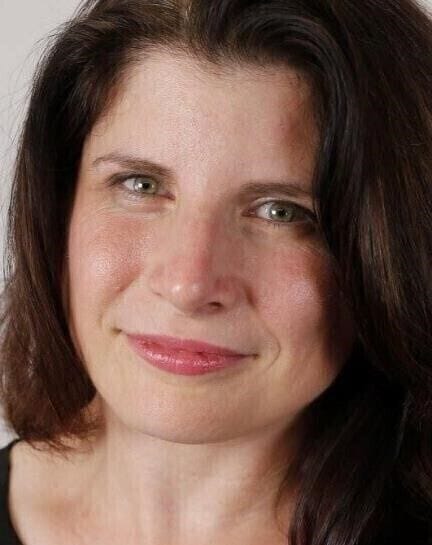
Linda Lacina
Digital Editor, World Economic Forum
すべてのエピソード:
並べ替える:
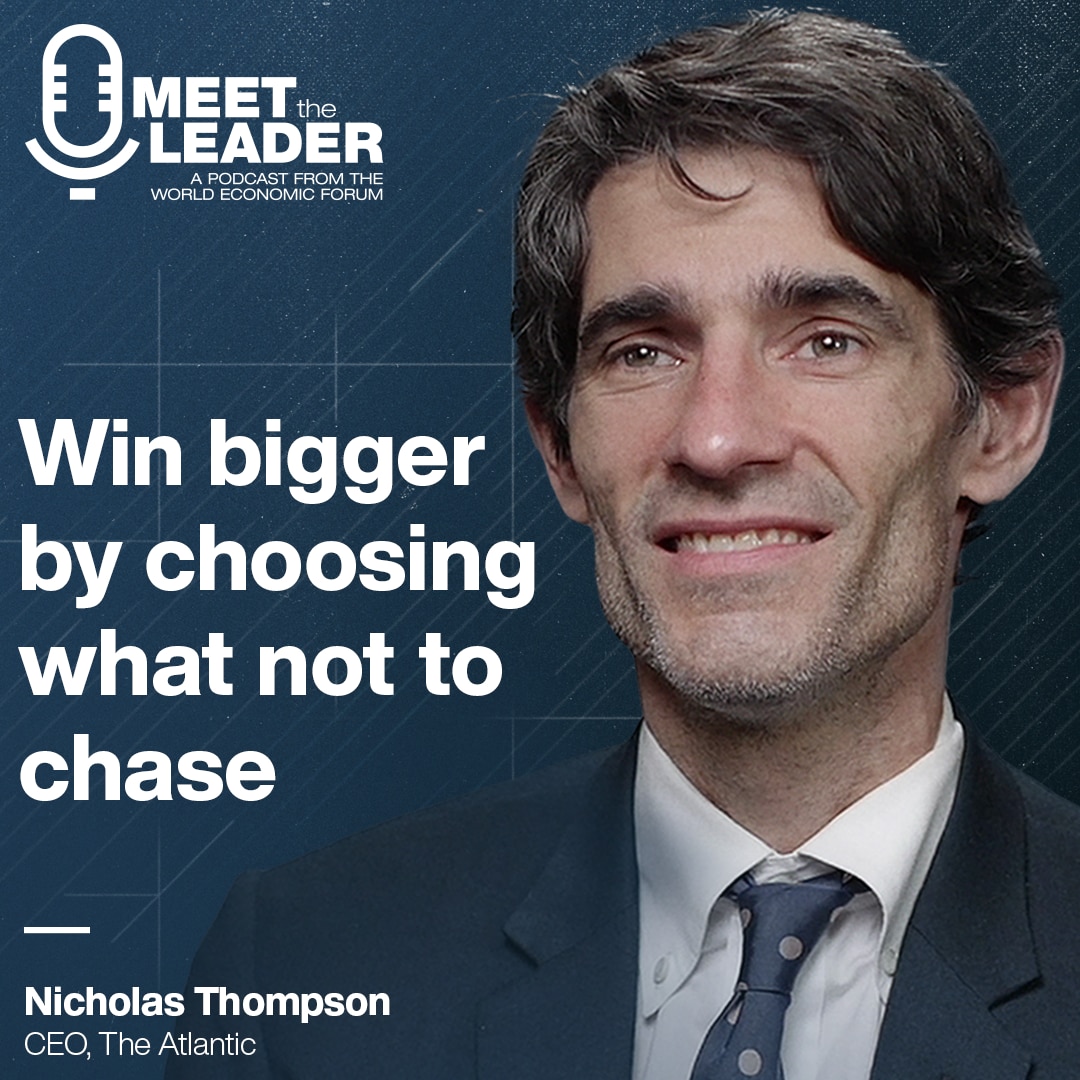
Why one CEO sets ‘non-goals’ - and what ultramarathons taught him about focus and mental toughness
• 44 mins
The Atlantic CEO Nicholas Thompson ran all his life but became an ultramarathoner in his 40s. Recommitting to the sport helped him break records and even get faster as he aged. The discipline he built also helped transform his approach to nearly every aspect of his life. His latest book, The Running Ground, focuses on his own personal journey with running, a sport that helped him cope with a cancer diagnosis in his 30s and later process his relationship with his complicated father. In this special conversation, Nick shares what running can teach leaders about the healthy habits that underpin success, pacing for the long game, and breaking through the mental barriers that derail progress. He details some of the strategies that help this father of 3 make time for what matters most including setting ‘non-goals’ to manage energy and not just time. As the leader driving digital transformation at a 169-year-old publication, he also reflects on navigating historic disruption and what he’s learned from The Most Interesting Thing in Tech, the daily videos he posts exploring the most compelling tech trends of our time.
• 44 mins
The Atlantic CEO Nicholas Thompson ran all his life but became an ultramarathoner in his 40s. Recommitting to the sport helped him break records and even get faster as he aged. The discipline he built also helped transform his approach to nearly every aspect of his life. His latest book, The Running Ground, focuses on his own personal journey with running, a sport that helped him cope with a cancer diagnosis in his 30s and later process his relationship with his complicated father. In this special conversation, Nick shares what running can teach leaders about the healthy habits that underpin success, pacing for the long game, and breaking through the mental barriers that derail progress. He details some of the strategies that help this father of 3 make time for what matters most including setting ‘non-goals’ to manage energy and not just time. As the leader driving digital transformation at a 169-year-old publication, he also reflects on navigating historic disruption and what he’s learned from The Most Interesting Thing in Tech, the daily videos he posts exploring the most compelling tech trends of our time.
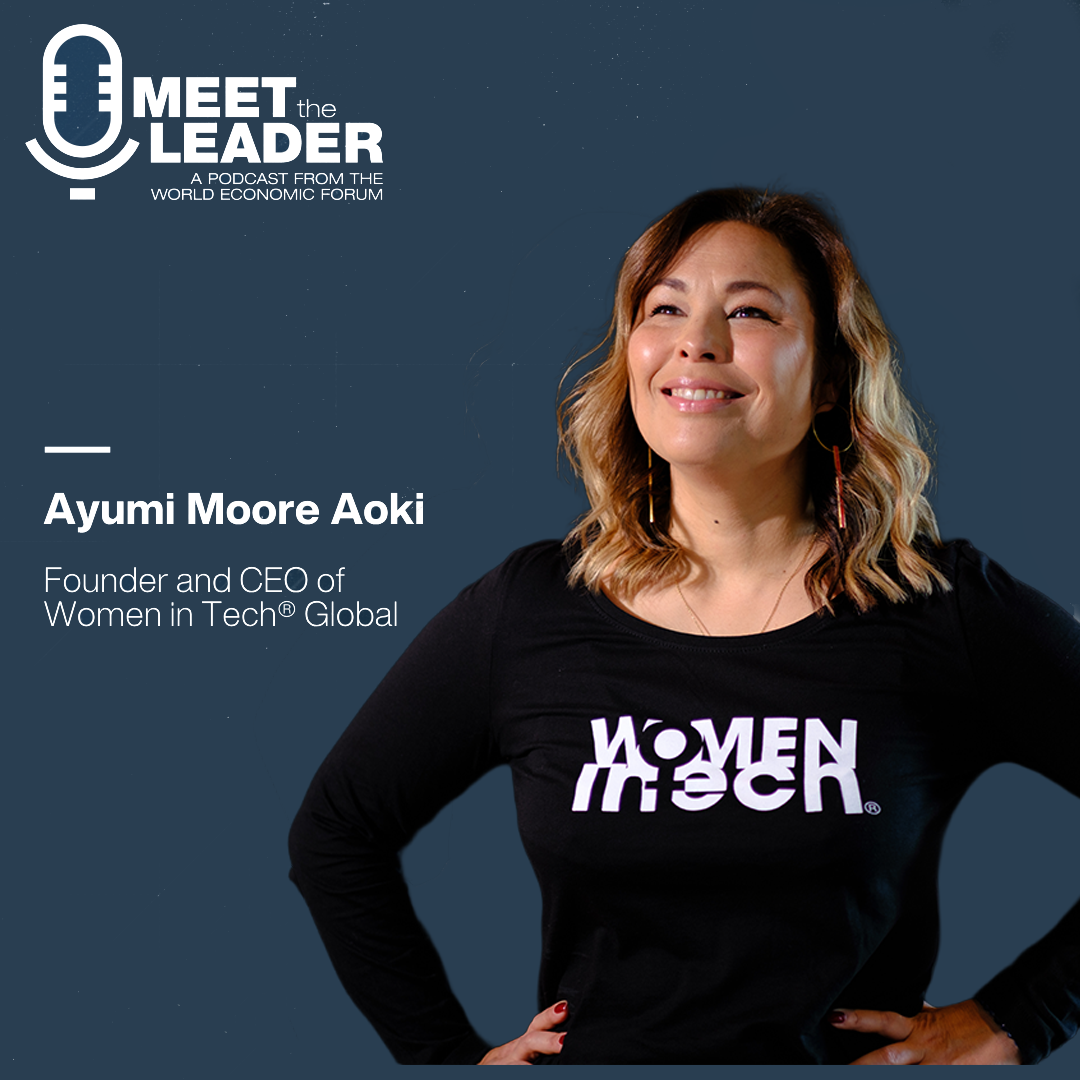
How to fix the talent pipeline for women in tech and AI
• 26 mins
While prospects for women in tech and AI have improved, women still comprise just a fraction of the tech workforce. Ayumi Moore Aoki is the founder of Women in Tech Global, an organization with a presence in over 60 countries around the world, one designed to empower women in the sector. She shares how a leaky talent pipeline makes opportunity harder to seize, what's needed at each stage of women's careers to bridge gaps and what leaders can do to ensure they make the most of their team's talents. She’ll also explain how women can distinguish themselves in AI and the one topic that will define that technology in the year ahead. Lastly, this serial founder also details how her background has prepared her to run WTG, from her time in South Africa during apartheid to her lessons learned as an entrepreneur.
• 26 mins
While prospects for women in tech and AI have improved, women still comprise just a fraction of the tech workforce. Ayumi Moore Aoki is the founder of Women in Tech Global, an organization with a presence in over 60 countries around the world, one designed to empower women in the sector. She shares how a leaky talent pipeline makes opportunity harder to seize, what's needed at each stage of women's careers to bridge gaps and what leaders can do to ensure they make the most of their team's talents. She’ll also explain how women can distinguish themselves in AI and the one topic that will define that technology in the year ahead. Lastly, this serial founder also details how her background has prepared her to run WTG, from her time in South Africa during apartheid to her lessons learned as an entrepreneur.
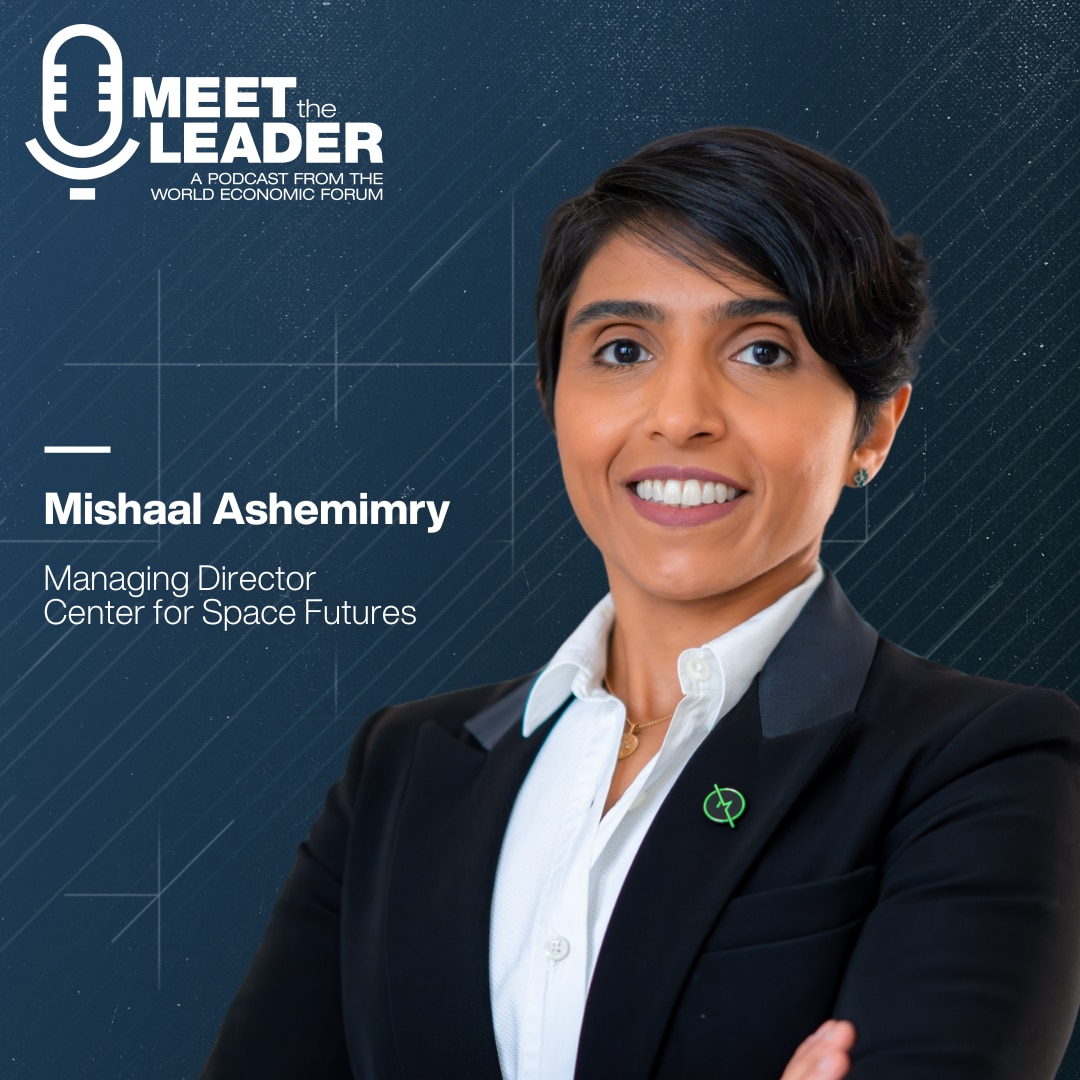
Be your own role model: A female rocket scientist, pioneer and science influencer explains
• 17 mins
Women comprise just a fraction of the aerospace sector - a field research says is poised for trillion-dollar growth in the years to come. Mishaal Ashemimry is the head of the Centre for Space Futures where she works to improve space policies and unlock the next phase of the space economy. She shares her experience as a woman not just in a male-dominated sector but in a region that for much of her life didn’t have a formal space agency. She explains what slows the growth of women in aerospace and what's changing for the better in this sector. She also shares the mindsets and strategies she used to get her ideas heard and to create opportunity for herself, tactics that helped her become the first female aerospace engineer in the Gulf Cooperation Council and to found her own rocket startup.
• 17 mins
Women comprise just a fraction of the aerospace sector - a field research says is poised for trillion-dollar growth in the years to come. Mishaal Ashemimry is the head of the Centre for Space Futures where she works to improve space policies and unlock the next phase of the space economy. She shares her experience as a woman not just in a male-dominated sector but in a region that for much of her life didn’t have a formal space agency. She explains what slows the growth of women in aerospace and what's changing for the better in this sector. She also shares the mindsets and strategies she used to get her ideas heard and to create opportunity for herself, tactics that helped her become the first female aerospace engineer in the Gulf Cooperation Council and to found her own rocket startup.
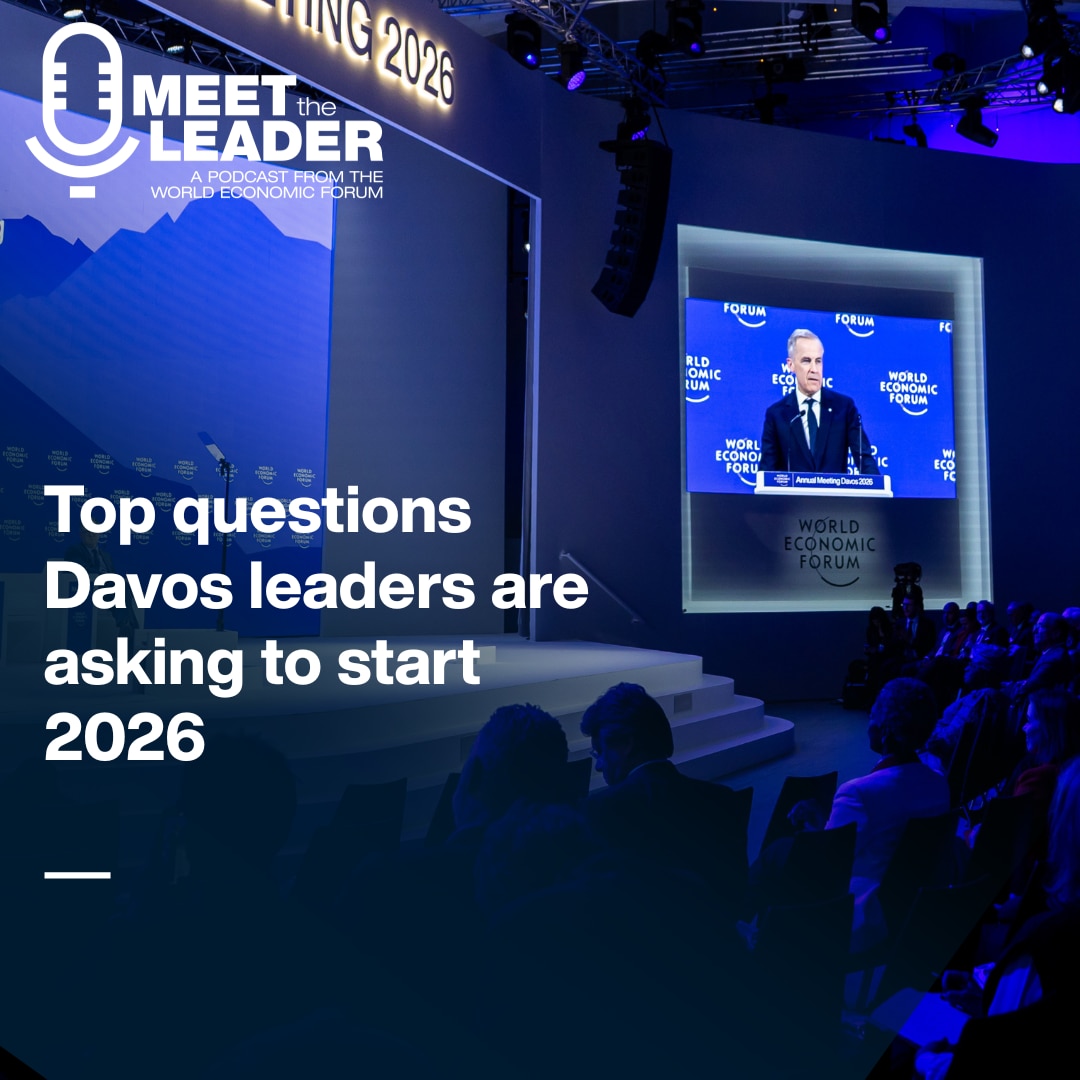
The questions top Davos leaders are asking to start 2026
• 27 mins
How can leaders navigate a world roiled by a host of uncertainties, from the impact of AI to jobs and economies, to an ever-warming world and increasing geopolitical conflicts? They can start by asking the right questions. In this special episode, with interviews recorded in Davos, leaders share what’s top of mind for 2026. They give their thoughts on how leaders can navigate the unknown, their strategies to focus on what matters most and the key questions they're looking to answer at the start the year.
• 27 mins
How can leaders navigate a world roiled by a host of uncertainties, from the impact of AI to jobs and economies, to an ever-warming world and increasing geopolitical conflicts? They can start by asking the right questions. In this special episode, with interviews recorded in Davos, leaders share what’s top of mind for 2026. They give their thoughts on how leaders can navigate the unknown, their strategies to focus on what matters most and the key questions they're looking to answer at the start the year.
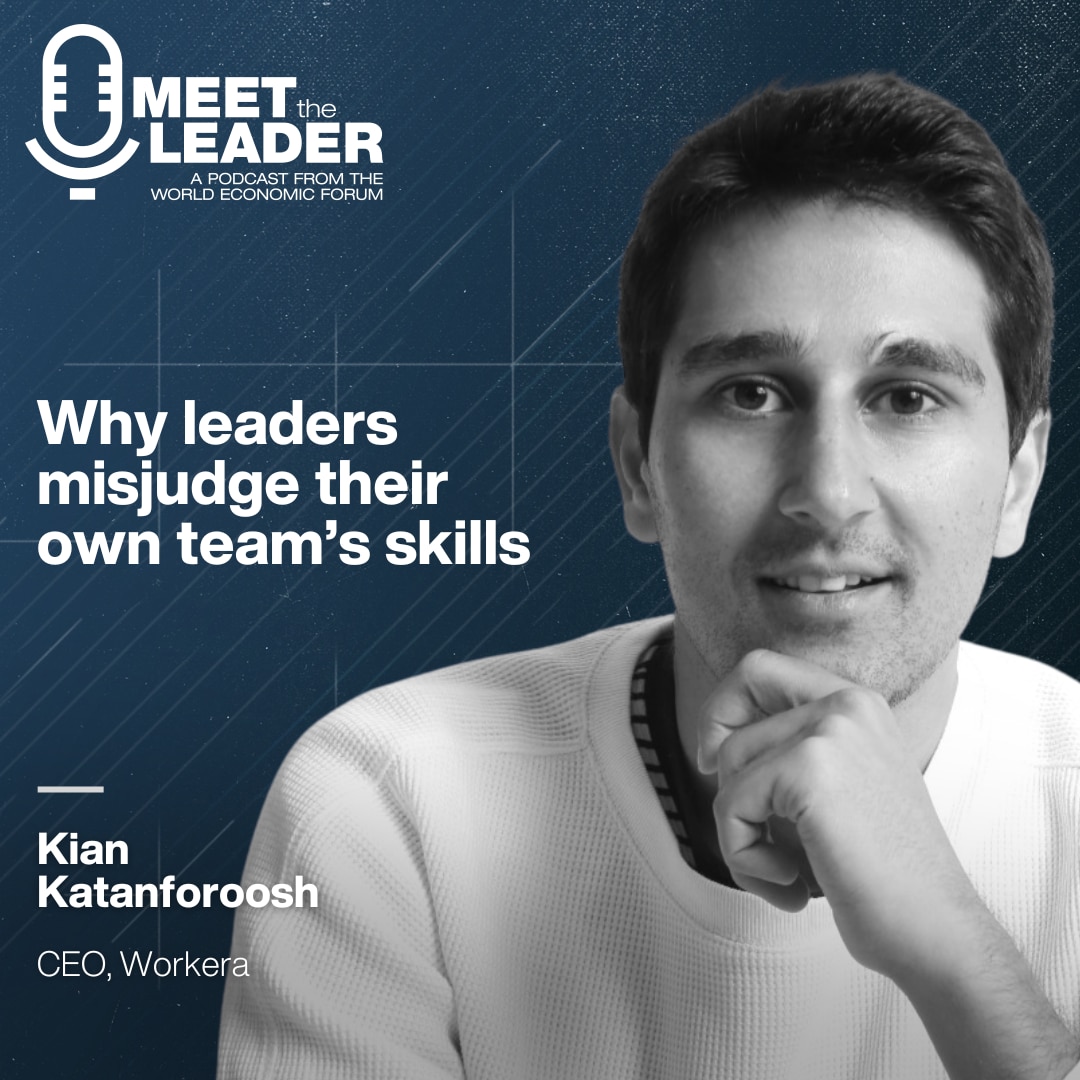
How to upskill for an AI Age: Workera CEO Kian Katanforoosh
• 35 mins
Upskilling for an AI era requires a strong grasp of individuals’ skills and potential. But leaders commonly wildly overestimate their own capabilities and misjudge what their teams can offer. CEO Kian Katanforoosh of skills measurement platform Workera shares what’s needed to bridge these learning gaps and offers a sneak peek at what the future could look like and if it will one day be ethical for a human to judge another human’s skillsets. He also shares how to use AI to refine your asks as a manager of humans, the gpas his own assessments have helped him bridge as a leader and what war games have taught him about strategic thinking..
• 35 mins
Upskilling for an AI era requires a strong grasp of individuals’ skills and potential. But leaders commonly wildly overestimate their own capabilities and misjudge what their teams can offer. CEO Kian Katanforoosh of skills measurement platform Workera shares what’s needed to bridge these learning gaps and offers a sneak peek at what the future could look like and if it will one day be ethical for a human to judge another human’s skillsets. He also shares how to use AI to refine your asks as a manager of humans, the gpas his own assessments have helped him bridge as a leader and what war games have taught him about strategic thinking..
